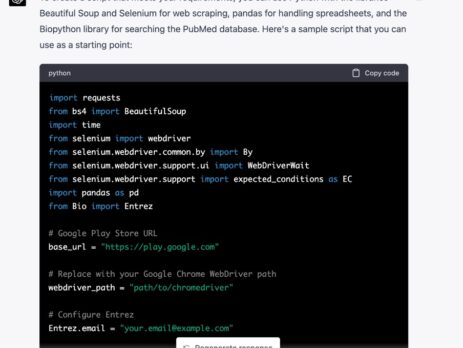This study explores the potential of generative AI, specifically ChatGPT, to automate time-intensive tasks involved in systematic reviews of mHealth apps. Using Design Science Research, we co-created a Python script with ChatGPT to streamline the process. While the output was a functional intermediate result, it required further refinement for full automation. The findings highlight the feasibility and limitations of using generative AI for research support.
What was the context of the study?
Systematic reviews are essential for understanding what works in healthcare and research, but they take a lot of time and effort. With the rapid growth of mobile health apps, researchers are overwhelmed by the amount of information. Generative AI, like ChatGPT, can help by automating some of these tasks.
What did we do?
We worked with ChatGPT to create a computer program that could search app stores and research databases for information about mHealth apps. The goal was to make it faster to collect the data needed for systematic reviews. ChatGPT guided us step by step, even troubleshooting coding errors.
What did we find?
The program successfully created a spreadsheet listing apps and their potential evidence of effectiveness. However, it wasn’t perfect and needed more improvements to replace manual work completely. Still, the process saved time and showed how AI could help researchers who aren’t coding experts.
Why is this important?
Using AI tools like ChatGPT can make research faster and easier, especially for people without programming skills. This could help researchers focus more on critical tasks, speeding up discoveries in healthcare.
Reference
Giunti G, Doherty C. Cocreating an Automated mHealth Apps Systematic Review Process With Generative AI: Design Science Research Approach. JMIR Med Educ 2024;10:e48949 https://doi.org/10.2196/48949

